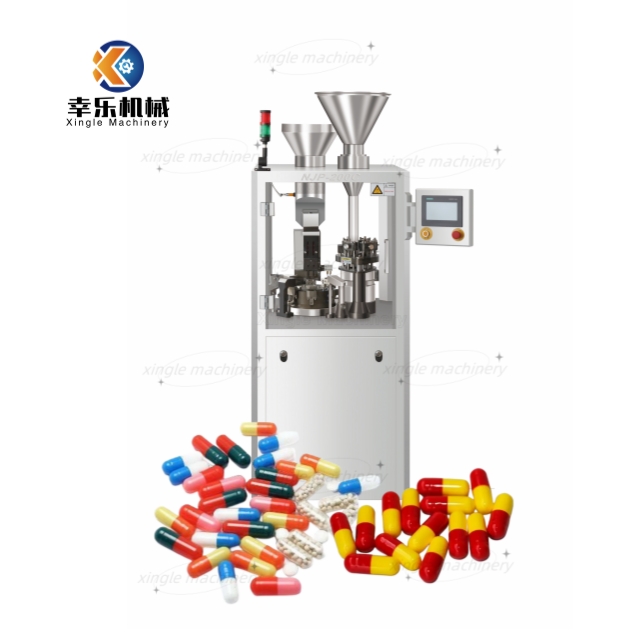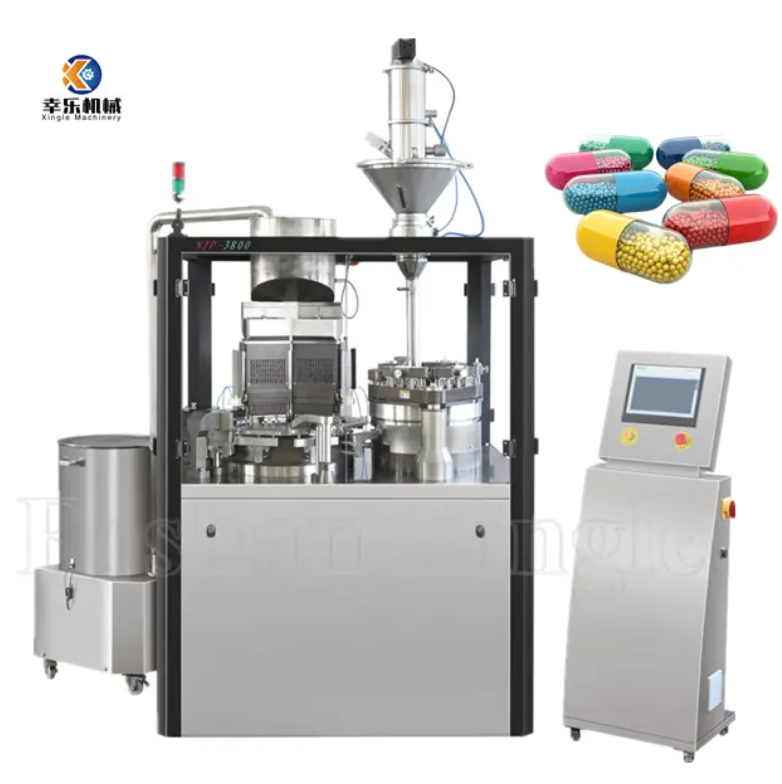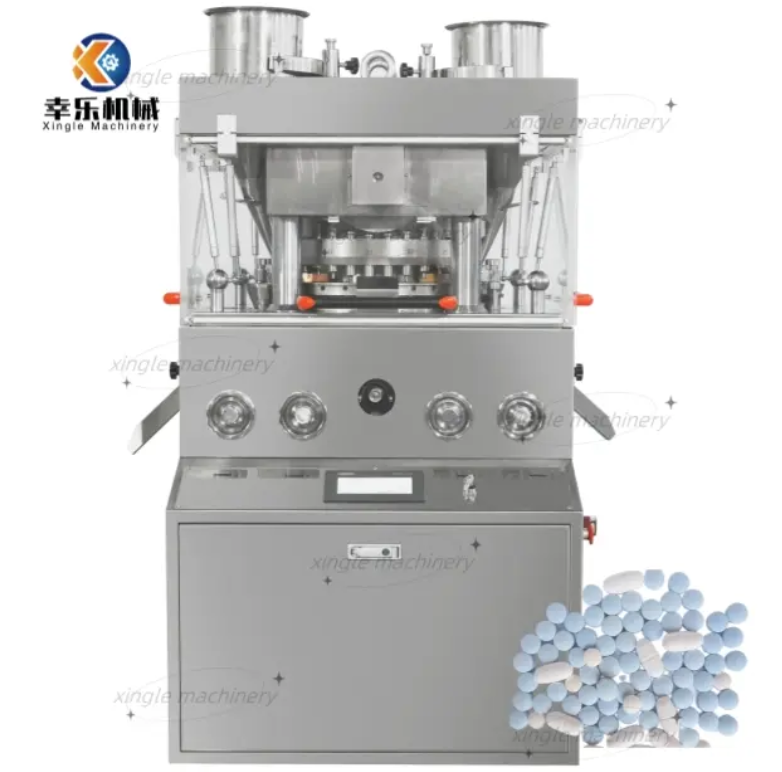








Are you confused about whether to choose capsules or tablets? Both are common forms of medication, but they have key differences. In this post, brought by Xingle, we'll explore the pros and cons of capsules vs tablets. You'll learn which form is best suited for your needs, whether it's for quicker absorption or convenience. By the end, you'll have a clear understanding of both and know how to make an informed choice.
A capsule is a type of medication enclosed in a shell. It can contain powder, liquid, or gel inside. Capsules are favored for their ease of swallowing and quick dissolution in the stomach.
The table below outlines the different types of capsules:
Capsules are widely used in pharmaceuticals and supplements, often selected for their fast absorption and ability to mask the taste of ingredients.
A tablet is a solid form of medication created by compressing powdered ingredients into a solid shape. Tablets are versatile and come in various forms to cater to different needs.
The table below shows the types of tablets:
Tablets are commonly used in both over-the-counter and prescription medications due to their stability, cost-effectiveness, and long shelf life.

Capsules and tablets differ significantly in their composition. A capsule consists of a shell made from either gelatin (animal-based) or plant-based materials like cellulose. Inside the capsule, you'll find a mixture of active ingredients, which can be in the form of powder, liquid, or granules. The gelatin shell of capsules helps protect the active ingredients, making them easier to digest.
Tablets, on the other hand, are formed by compressing powdered ingredients along with excipients such as fillers, binders, and lubricants into a solid form. Excipients help give tablets their shape and stability. Tablets can also include coatings to make swallowing easier or to control the release of the medication in the body.
One key difference here is that capsules tend to contain fewer excipients than tablets. This means capsules may be a better option for people with sensitivities or allergies to fillers. Furthermore, capsules offer more flexibility, as they can contain liquid or semi-solid ingredients, which is not possible with tablets. Tablets, though, are often cheaper and have a longer shelf life due to their solid, compressed nature.
The rate at which a drug is absorbed and its bioavailability—the proportion that enters circulation and has an active effect—can vary between capsules and tablets. Capsules tend to have a faster absorption rate because their gelatin or plant-based shell dissolves quickly in the stomach, releasing the active ingredients rapidly. This makes capsules ideal for medications that need to work quickly, such as pain relievers or antibiotics.
Tablets, however, require more time to dissolve in the digestive tract. They are more solid, which means they take longer to break down and release the active ingredients. This slower breakdown process can delay the onset of the medication's effects. For some, this slower absorption might not be an issue, especially when extended-release tablets are designed to provide medication gradually over time.
Additionally, the compression process in tablet manufacturing can affect how evenly the active ingredients are distributed. This means that tablet bioavailability may be lower than capsules, especially if the tablet contains a large number of fillers or is not well-pressed.
When it comes to swallowing, capsules generally have the edge. Their smooth, rounded shape makes them easier to swallow, especially for individuals who have difficulty with large or rough pills. Capsules are often smaller than tablets and can be easier to swallow without causing discomfort or irritation in the throat.
Tablets, on the other hand, can be difficult for some people to swallow due to their size, shape, and texture. This is especially true for larger tablets, which may be harder to swallow without water or additional assistance. However, tablets come in various sizes, and some are designed to be chewable or can be split in half to make swallowing easier.
For those who struggle with swallowing pills in any form, alternatives like liquid-filled capsules or chewable tablets may be more comfortable options. Liquid-filled capsules offer a smooth texture and are often smaller, while chewable tablets can be taken without water, making them more convenient for individuals with swallowing difficulties.
Taste and odor are important factors to consider when choosing between capsules and tablets. Capsules generally excel at masking the taste of medications. The shell protects the active ingredients, preventing the unpleasant flavors from being detected by the taste buds. This makes capsules a better option for medications with a bitter or unpleasant taste, like certain vitamins, minerals, or antibiotics.
Tablets, however, especially those that are uncoated, can have a strong, bitter taste that may linger in the mouth after swallowing. This can be especially problematic for people who are sensitive to certain flavors. Some tablets do have a coating to help mask the taste, but they still may not be as effective as capsules in preventing unpleasant flavors.
In cases where taste is a concern, softgel capsules (a type of liquid-filled capsule) are often preferred, as they are more effective at covering up strong odors or flavors. For those who can't handle the taste of tablets, chewable tablets are a popular alternative, though they may not completely eliminate the taste issue.
Overall, if taste and odor are a priority, capsules tend to offer a better solution, but tablets can be effective with the right coatings or formulations.
The production of capsules starts with the preparation of the shell, which can be made from either gelatin (animal-based) or plant-based materials like cellulose. Hard capsules are formed by filling powder or granules into the shell, which is then sealed. Softgel capsules, on the other hand, are made by enclosing liquid or gel-based ingredients within a soft, gelatinous shell.
The manufacturing of capsules is relatively simple and allows for a high level of purity. Since the shell protects the contents from external factors like moisture and air, capsules have a longer shelf life and better stability compared to other dosage forms. Additionally, capsules tend to have fewer excipients, which makes them a good choice for individuals who have sensitivities or allergies to additives.
The process of making tablets involves several stages: mixing, granulation, pressing, and coating.
Compression plays a critical role in the tablet's structure and bioavailability. A higher compression force can result in a denser tablet, which may dissolve slower. This can affect how quickly the active ingredients are absorbed into the bloodstream. In some cases, extended-release tablets are designed with specific coatings to control the release of the drug over time.

Capsules are known for their quick absorption. The shell dissolves rapidly in the stomach, releasing the active ingredients faster. This is particularly beneficial when immediate effects are needed, such as with pain relief or other fast-acting medications.
One of the key benefits of capsules is that they contain fewer excipients compared to tablets. This makes them a suitable choice for people with sensitivities or allergies to certain additives. Capsules are often more comfortable to swallow, thanks to their smooth and rounded shape. For many people, they are easier to take, especially those who struggle with larger, harder pills.
Capsules also tend to have better bioavailability. The protective shell aids in the rapid release of active ingredients, which helps achieve faster therapeutic action.
Tablets generally have a lower production cost, making them more affordable. This can be an important factor for people who need regular medications and are looking for cost-effective options.
Tablets are also easier to store and handle, as they are more durable than capsules. They can withstand more environmental factors like humidity and temperature, ensuring they maintain their integrity for longer periods.
Another advantage of tablets is the variety of types available. There are chewable tablets, extended-release tablets, and dissolvable tablets, which cater to different needs and preferences. Tablets also have a long shelf life, making them a stable option for long-term storage.
Capsules are more sensitive to environmental conditions, particularly humidity and temperature. These factors can affect the integrity of the shell and shorten the capsule's shelf life compared to tablets.
The production process for capsules is more complex, which makes them more expensive to manufacture. As a result, capsules tend to be more costly for consumers.
Tablets have a slower absorption rate compared to capsules. Since they are solid and must dissolve before the active ingredients are released, it takes longer for the medication to be absorbed into the bloodstream.
Some tablets contain more excipients, which can cause digestive issues like bloating or discomfort, particularly in individuals with sensitive stomachs. Additionally, many tablets can have a bitter taste or unpleasant texture, which makes them difficult to swallow for some people.
Lastly, large tablets can be difficult to swallow, especially for children or adults with swallowing issues. Even though some tablets are designed to be split or chewed, this option isn't always available.
When deciding between capsules and tablets, a few factors should guide your choice.
Speed of Action: Capsules are typically faster-acting than tablets. The shell dissolves quickly in the stomach, releasing the active ingredients more rapidly. This is beneficial when you need immediate relief, such as with pain or fever medications.
Dosage Requirements: Tablets are often better for managing higher doses of medication. They can hold more active ingredients, which makes them ideal for those who need stronger doses or a more controlled release. Capsules, due to their size, may be less effective for higher dosages.
Allergies or Dietary Restrictions: For those with dietary preferences or allergies, capsules offer more options. Capsules can be made from plant-based cellulose, making them suitable for vegans. Tablets often contain more excipients like lactose or gluten, which can be a concern for individuals with specific dietary needs.
Price Considerations: Tablets are usually more affordable than capsules. Their production process is simpler and less expensive, which means they are typically the more budget-friendly option. If cost is a major concern, tablets may be the way to go.
When Capsules Are Preferred: Capsules are generally better when you need fast absorption. For example, pain relievers, antibiotics, and cold medications often come in capsule form because they act quickly. The rapid dissolution of the capsule shell allows the medication to enter your bloodstream faster.
When Tablets Are More Appropriate: Tablets are often chosen for chronic conditions, especially when a steady release of medication is needed. Extended-release tablets are designed to release their active ingredients slowly over time, providing a steady effect throughout the day. Conditions like hypertension or diabetes may require tablets that release medication gradually, which is not possible with capsules.
Certain medications are designed specifically for capsules or tablets based on their formulation. For instance, liquid-filled capsules are great for poorly soluble drugs, while tablets can offer a longer shelf life and more versatility in dosing.
Capsules and tablets each have unique benefits. Capsules dissolve quickly, offering faster absorption, while tablets are more durable and cost-effective. When choosing, consider your health needs, dosage requirements, and preferences. If you need fast relief, capsules might be best. For long-term use or higher doses, tablets may be more suitable. Consulting a healthcare provider to find the right option for you.
A: Capsules and tablets are not always interchangeable. The choice depends on the medication's formulation, dosage, and intended release mechanism. Always consult a healthcare provider before switching.
A: Capsules generally can't be split because their contents, often powders or liquids, are designed to be released evenly. Splitting them may alter the dosage or effectiveness. If dosage adjustments are necessary, it's best to consult a healthcare provider or use a different formulation.
A: Capsules made from gelatin, a byproduct of animals, have a higher environmental impact. However, plant-based alternatives like cellulose are available for vegetarians and vegans. Tablets, made from compressed powders, tend to be more stable and require fewer environmental considerations during production.
A: Yes, capsules can be taken with food or liquids. In fact, some people find it easier to swallow capsules when taken with water or soft food like applesauce.
Copyright © 2023 Foshan Xingle Machinery Equipment Co.,Ltd. 粤ICP备2023093194号 All rights reserved. Privacy Policy | Sitemap | Support By Leadong